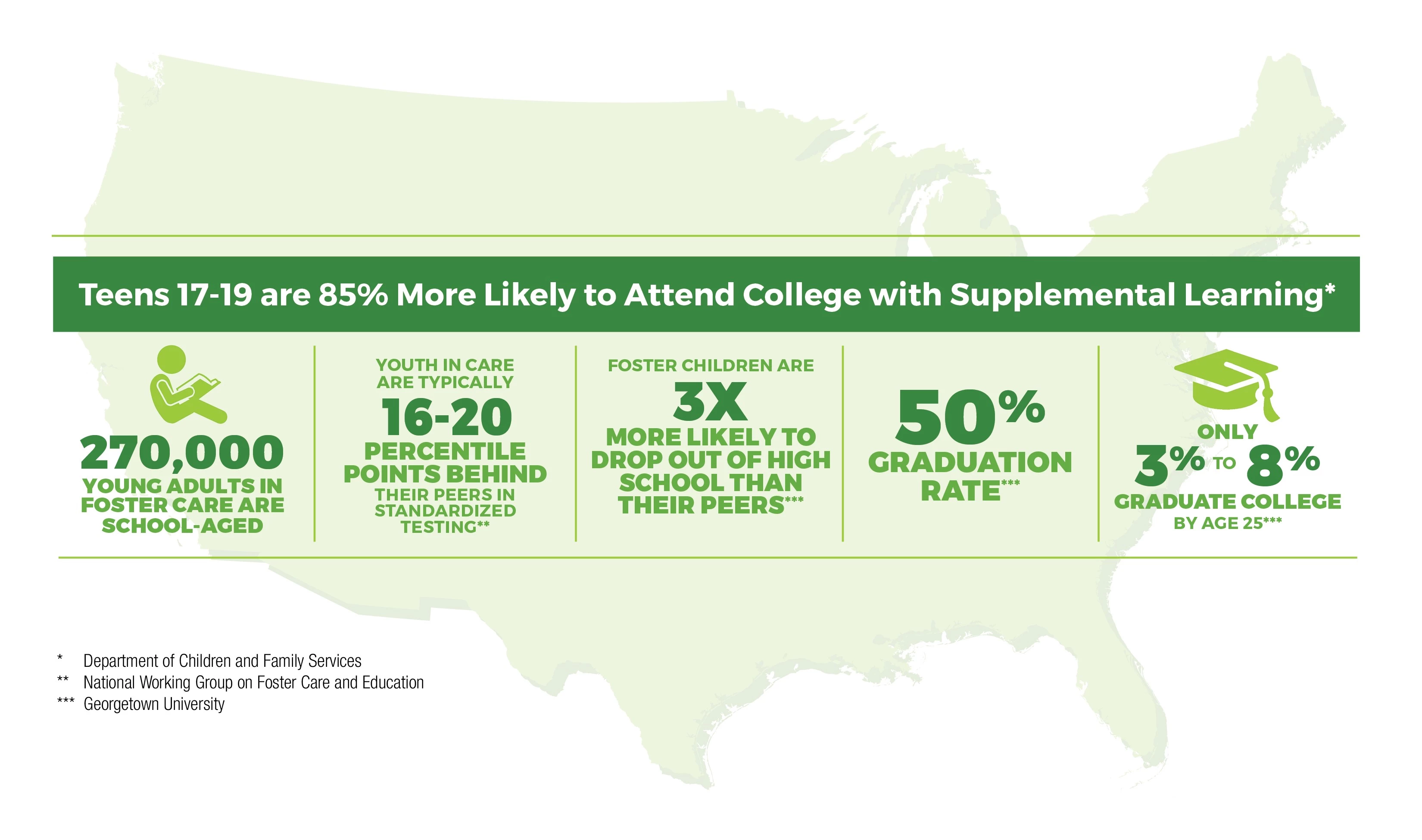Bridging the Gap: How Tutoring & Intervention Can Help Youth in Foster Care
By Huntington Learning Center
Widespread health crises have largely impacted students nationwide, with skills gaps and unfinished learning becoming one of the biggest issues students face today. Many schools and districts are looking to bridge these gaps by providing high-dosage tutoring, reading and math interventions, and educational scholarships to allow students to seek private help.
Negative effects on education are not equally impacting school-aged children and young adults. Almost 400,000 children across the United States are in foster care, 270,000 of whom are school-aged. The pandemic’s effect on school-aged children was recently highighted in the National Report Card, and the numbers are even more dire for students in foster care.
According to the National Working Group on Foster Care and Education, youth in foster care are typically 16-20 percentile points below their peers. Less than 60% of students in foster care finish high school while only 3% of students in foster care attend college after graduating high school. Another study published by Georgetown University found that “foster children are three times more likely to drop out of high school than other low-income children, only 50 percent graduate from high school, and only three to eight percent graduate college by age 25.” The study also found that youth who do not graduate high school are three times more likely to end up homeless, unemployed, or imprisoned.
The significance of supplemental intervention in education is not limited to school-aged children. In fact, studies have shown that the ripple effect of positive academic success reaches adulthood. A study done by the Department of Children and Family Services showed that teens between the ages of 17-19 who are given the opportunity for supplemental education have an 85% chance of going to college. Given the opportunity and support, education can be a transformative force for youth in care, allowing them to overcome the adversity of their childhood and build a brighter future.
Through our research-based, student, and data-driven education practices, Huntington Learning Center can provide students with educational stability as well as tutoring to bridge academic gaps caused by displacement and change.

